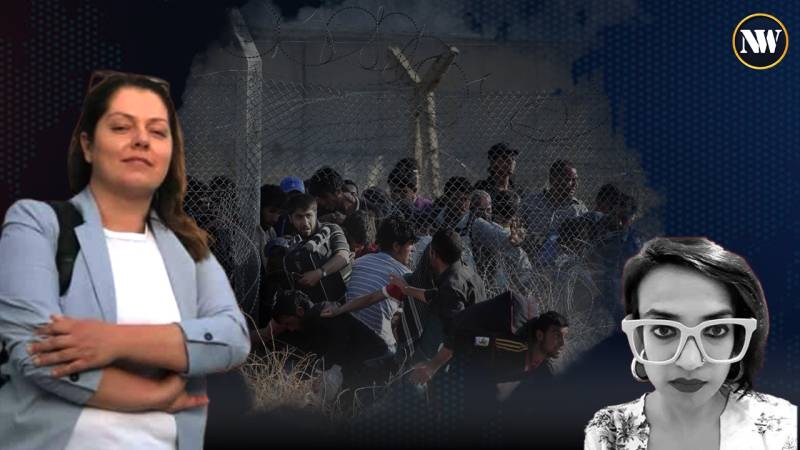The quest for a better life often leads individuals to embark on perilous journeys across borders, seeking refuge and opportunities in foreign lands. A poignant example of this global phenomenon is the crisis facing Pakistani youth and men as they navigate the treacherous Balkans migration route in their pursuit of a brighter future in Europe. The tragic and heart-wrenching stories that unfold along this route shed light on the challenges, risks, and policy implications of irregular migration.
The Balkans migration route has gained prominence as a passage fraught with danger and uncertainty for migrants from the Middle East, South Asia, and Central Asia. This route, stretching from Turkey to Greece, Albania, Montenegro, Croatia, and finally to European Union countries, promises hope but is often riddled with adversity. The journey's focal point is Italy, a beacon of aspiration for many Pakistani migrants. However, what awaits them on this journey is a harrowing narrative of human desperation and exploitation.
In June, the world was stunned by the Greece boat tragedy, a catastrophic incident that underscored the perilous nature of irregular migration. This tragedy, which claimed the lives of hundreds of migrants, asylum seekers, and refugees, resonated deeply within the Pakistani community. Among the victims were a significant number of Pakistanis, prompting a spotlight on the broader crisis affecting this vulnerable demographic.
Elona, a dedicated journalist based in Germany, has been unwavering in her commitment to understanding and unraveling the complexities of the Balkans migration route. Her extensive research has illuminated the experiences of migrants, shedding light on the challenges they face and the networks that exploit their vulnerability. Elona's insights have been instrumental in revealing the multi-layered dynamics of this crisis.
At the core of this crisis lies the heart-wrenching reality of migrants embarking on a journey that often begins in desperation and ends in uncertainty. Pakistani migrants, like their counterparts from Afghanistan, Syria, Morocco, and Bangladesh, embark on this perilous route seeking refuge from conflict, insecurity, and limited opportunities in their home countries. The sacrifices they make are immense, both financially and emotionally, as they pay exorbitant sums to trafficking networks that promise passage to a better life.
The journey along the Balkans migration route is fraught with challenges at every turn. Upon entering Albania, migrants often find themselves devoid of funds, identification documents, and passports. These individuals are at the mercy of local residents, who provide temporary shelter and assistance. With little more than a small sum of money, migrants must navigate this treacherous path, relying on social connections, word-of-mouth advice, and smugglers to guide their way.
One particularly disturbing aspect of this crisis is the exploitation and abuse migrants endure along the way. Trafficking networks, often spearheaded by individuals from the migrants' own countries, capitalize on their desperation. These networks extract exorbitant fees for services that promise safe passage, exploiting migrants' dreams of a better life. Reports of violence, abuse, and criminality cast a somber shadow over the journey, highlighting the urgent need for international cooperation and effective countermeasures.
While international agreements and conventions exist to safeguard the rights and dignity of migrants, the gap between policy and practice remains stark. Governments and international bodies must move beyond the bureaucratic aspects of immigration and prioritize the well-being of those who embark on these perilous journeys. Human dignity should not be compromised in the pursuit of border security. The tragic stories that unfold along the Balkans migration route underscore the need for comprehensive, compassionate, and effective policies that address the unique challenges faced by migrants.
Elona's insights paint a poignant picture of the crisis and the urgent need for intervention. She highlights the crucial role that the European Union and governments along the Balkans route play in shaping the fate of migrants. The stories she gathers from Pakistani migrants, who often endure harrowing experiences, serve as a testament to the resilience of the human spirit in the face of adversity.

